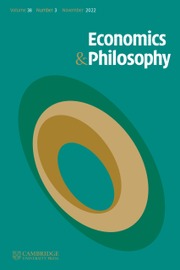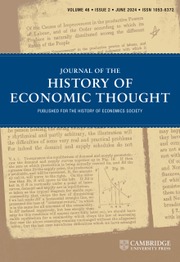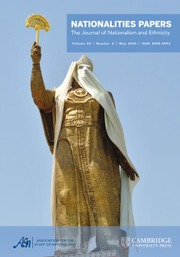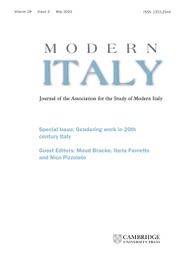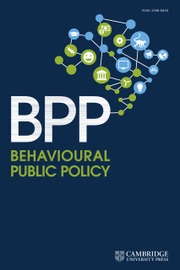Intellectual Capital
Forty Years of the Nobel Prize in Economics
$55.99 (G)
- Author: Tom Karier
- Date Published: August 2010
- availability: Available
- format: Hardback
- isbn: 9780521763264
$
55.99
(G)
Hardback
Other available formats:
Paperback, eBook
Looking for an examination copy?
This title is not currently available for examination. However, if you are interested in the title for your course we can consider offering an examination copy. To register your interest please contact [email protected] providing details of the course you are teaching.
-
There is arguably no award more recognized in the academic and professional worlds than the Nobel Prize. The public pays attention to the prizes in the fields of economics, literature, and peace because their recipients are identified with particular ideas, concepts, or actions that often resonate with or sometimes surprise a global audience. The Nobel Prize in Economic Science established by the Bank of Sweden in 1969 has been granted to 64 individuals. Thomas Karier explores the core ideas of the economic theorists whose work led to their being awarded the Nobel in its first 40 years. He also discusses the assumptions and values that underlie their economic theories, revealing different and controversial features of the content and methods of the discipline. The Nobelists include Keynesians, monetarists, financial economists, behaviorists, historians, statisticians, mathematicians, game theorists, and other innovators. Rich in biographical details, illuminating the modern history of the discipline as a whole, Intellectual Capital allows an audience of lay and professional readers to readily understand the notions that define modern economic science and practice. It pointedly asks, and answers, whether the prizes have been awarded to those economists “who have during the previous year rendered the greatest service to mankind.”
Read more- A succinct, sometimes critical description of the prize-winning ideas as well as supportive and critical comments by other Nobel Prize winners and economists
- The economic ideas presented in this book provide a unique description of the state of modern economic science
- A brief description of the background of each laureate helps to place their ideas in a personal and historical context
Reviews & endorsements
“In the style of Robert Heilbroner’s Worldly Philosophers, Thomas Karier offers us a perspective on modern economics. Whereas Heilbroner used the backdrop of the lives and accomplishments of the classical economists, Intellectual Capital uses the backdrop of the lives and accomplishments of the Nobel Prize winners. Karier thus gives an easy and lively introduction to a difficult subject: what is modern economics, and what motivates it. Nor is he lacking in strong opinions.” – George A. Akerlof, Nobel Laureate in Economics 2001, University of California, Berkeley
See more reviews“Excellent – well researched, well written in an interesting and accessible way, and spot on about different economists’ underlying assumptions and values. It should have a broad audience within the profession, as well as among those who follow economics and think about the role of economics in everyday life. Lay readers will learn a great deal of economics through this book.” – Clair Brown, University of California, Berkeley
“Tom Karier has written a stimulating, accessible, and objective account of the contributions of the economics Nobel laureates in relation to the main domains of investigation that have characterized postwar economics. The book offers an excellent review of past economics and clues regarding the future of economics.” – John Davis, University of Amsterdam and Marquette University
“Even-handed, lively, and (surprisingly) compelling survey of the top, modern economists and the ideas they got right and wrong. Karier provides an accessible way to understand how economists are rewarded and given significant influence and power.” – Teresa Ghilarducci, The New School
"Thomas Karier has provided a double service with this book. First, he has provided a very useful and readable summary of the work and lives of major prize-winner economists, a reference that will prove very helpful to economists who are non-experts in the fields recognized by the prize. His exposition reflects his own view that economics does not require dense mathematics to makes its points. But as important, he has subjected the goals and roles of the Nobel Prize in economics to critical analysis, something that he has convinced me is needed." - EH.Net
Customer reviews
Not yet reviewed
Be the first to review
Review was not posted due to profanity
×Product details
- Date Published: August 2010
- format: Hardback
- isbn: 9780521763264
- length: 368 pages
- dimensions: 236 x 161 x 23 mm
- weight: 0.63kg
- availability: Available
Table of Contents
1. An economic prize
2. Free market economics
3. Micro: Chicago school
4. Stock market casino
5. More micro
6. A moral hazard
7. Keynesians
8. Classical revival
9. The inventors
10. Game geeks
11. General equilibrium
12. A world view
13. Numbers guys
14. History and institutions
15. Reshaping the prize.
Sorry, this resource is locked
Please register or sign in to request access. If you are having problems accessing these resources please email [email protected]
Register Sign in» Proceed
You are now leaving the Cambridge University Press website. Your eBook purchase and download will be completed by our partner www.ebooks.com. Please see the permission section of the www.ebooks.com catalogue page for details of the print & copy limits on our eBooks.
Continue ×Are you sure you want to delete your account?
This cannot be undone.
Thank you for your feedback which will help us improve our service.
If you requested a response, we will make sure to get back to you shortly.
×




